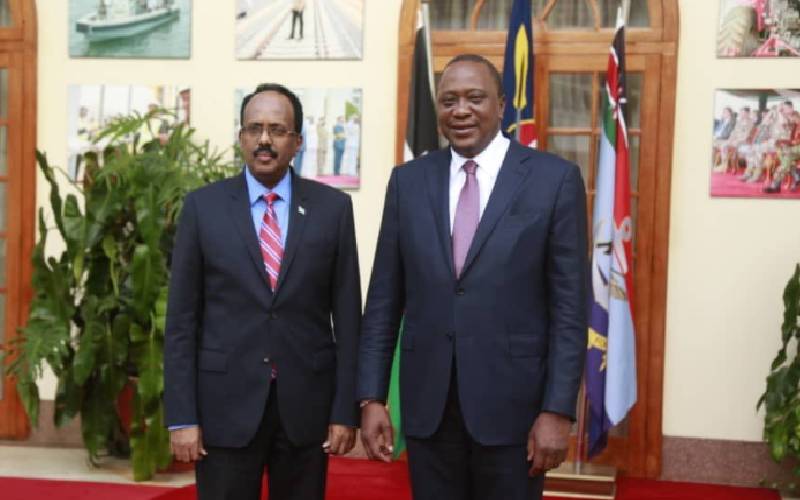×
The Standard e-Paper
Home To Bold Columnists

President Uhuru Kenyatta (right) with his Somalia counterpart Mohamed Farmaajo at State House Nairobi. [PSCU]
To say that Somalia’s foreign policy has been successful in recent years would be an overstatement. The once united nation is collapsing at the seams. Unfortunately, for the administration, the true nature of this reality hasn’t dawned yet.